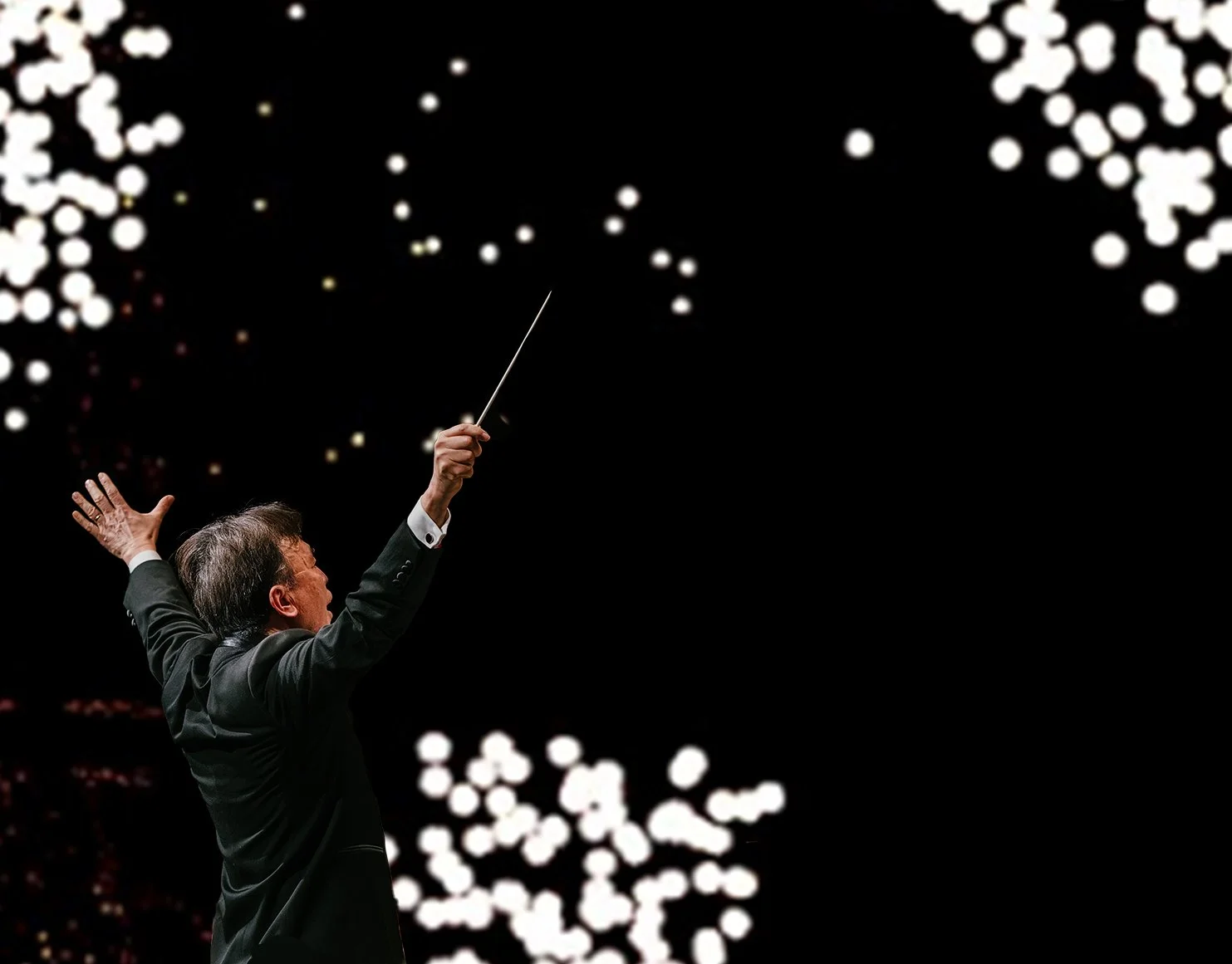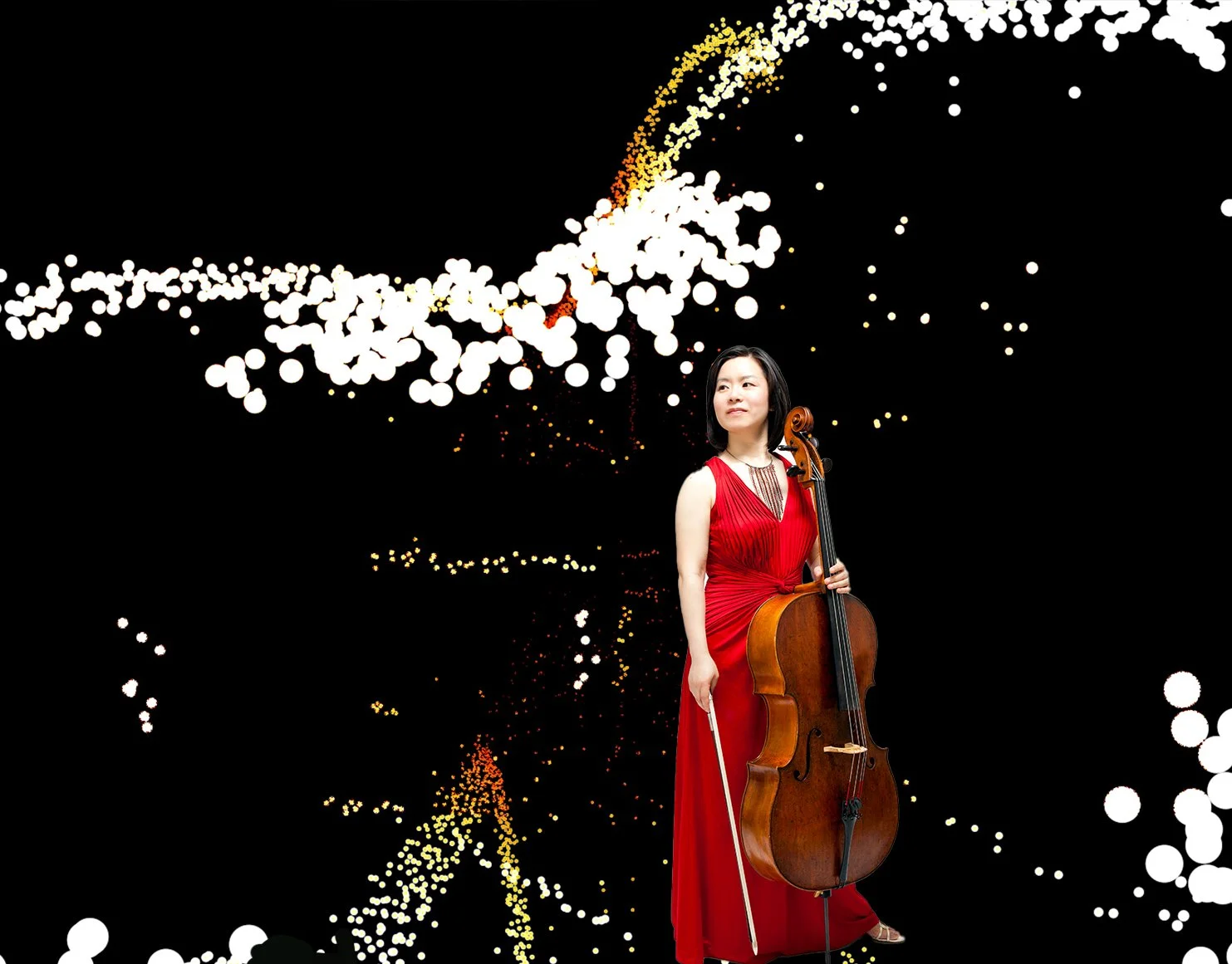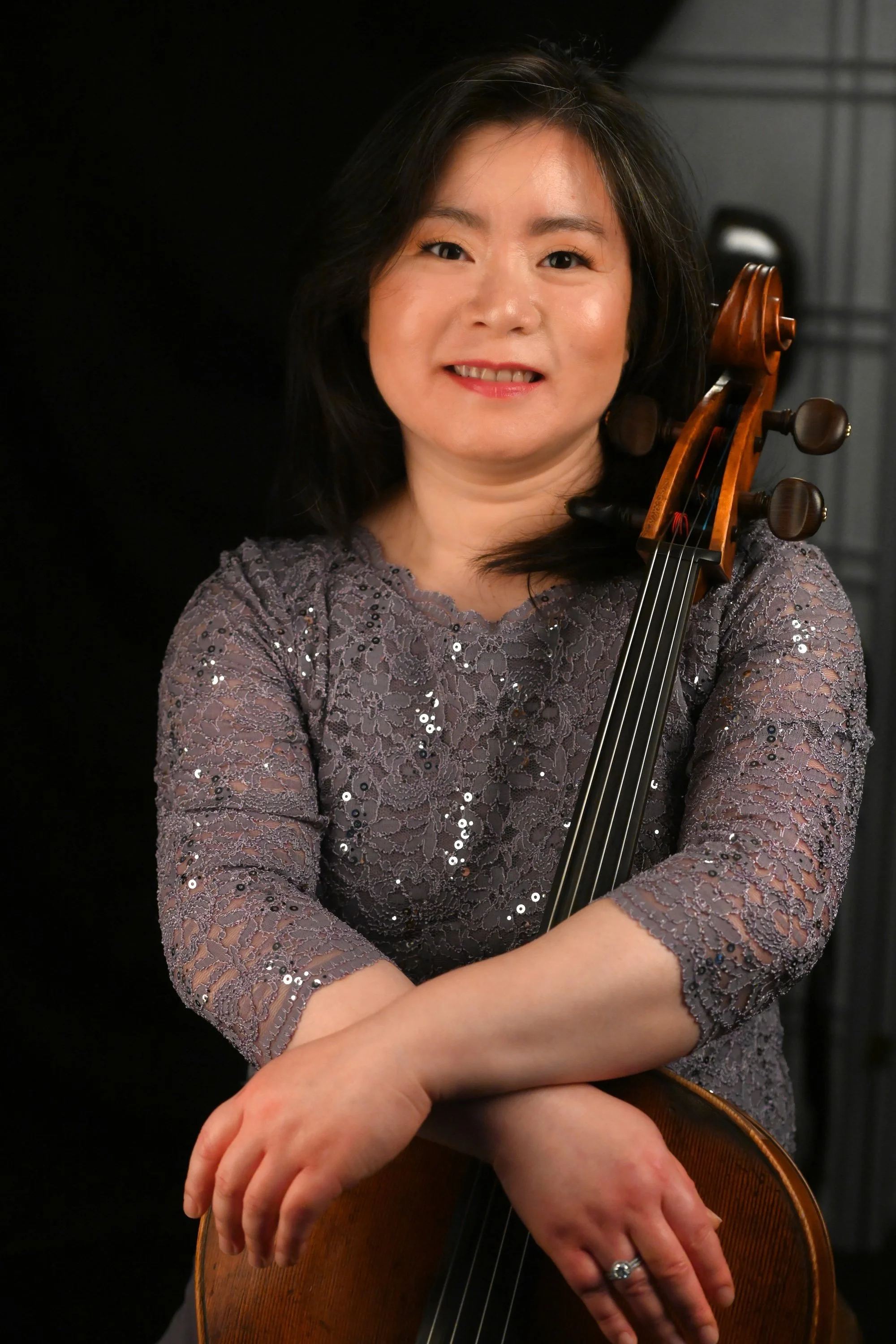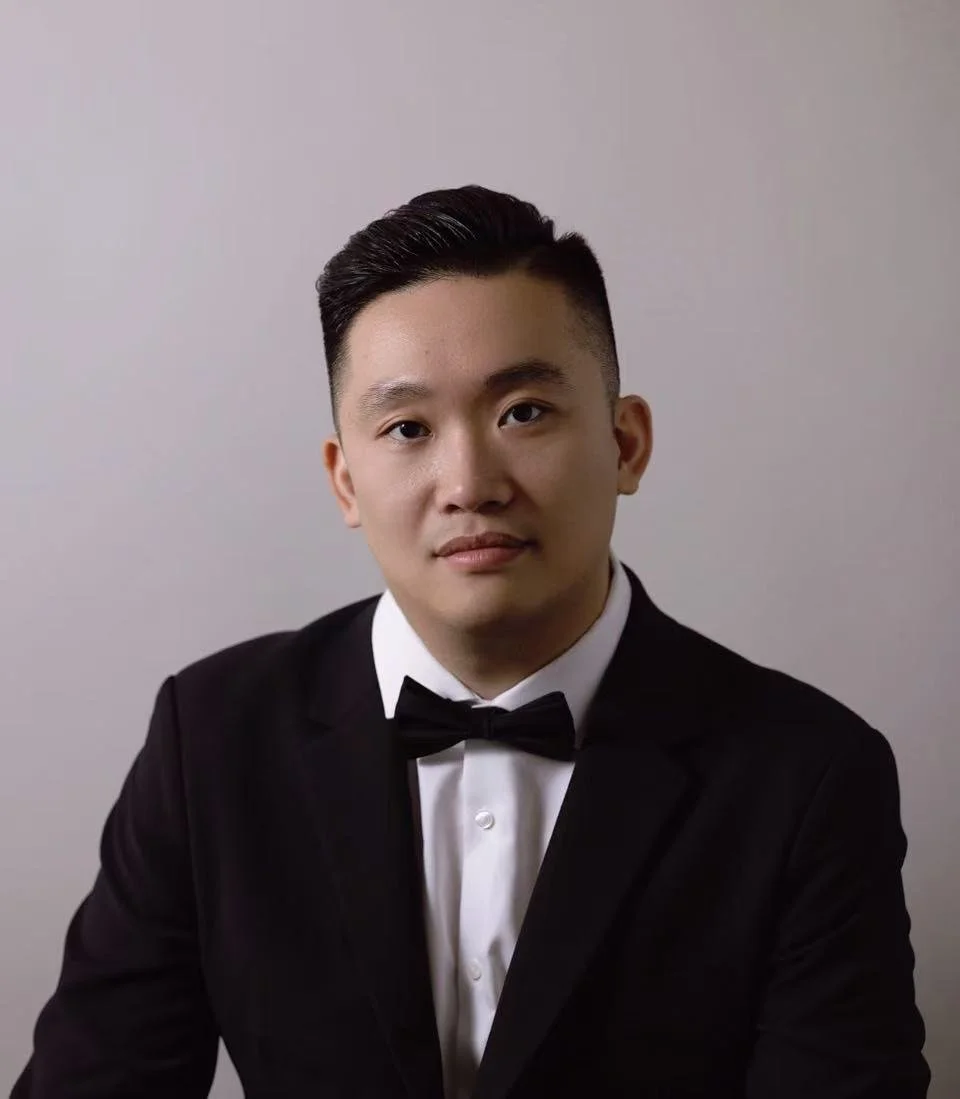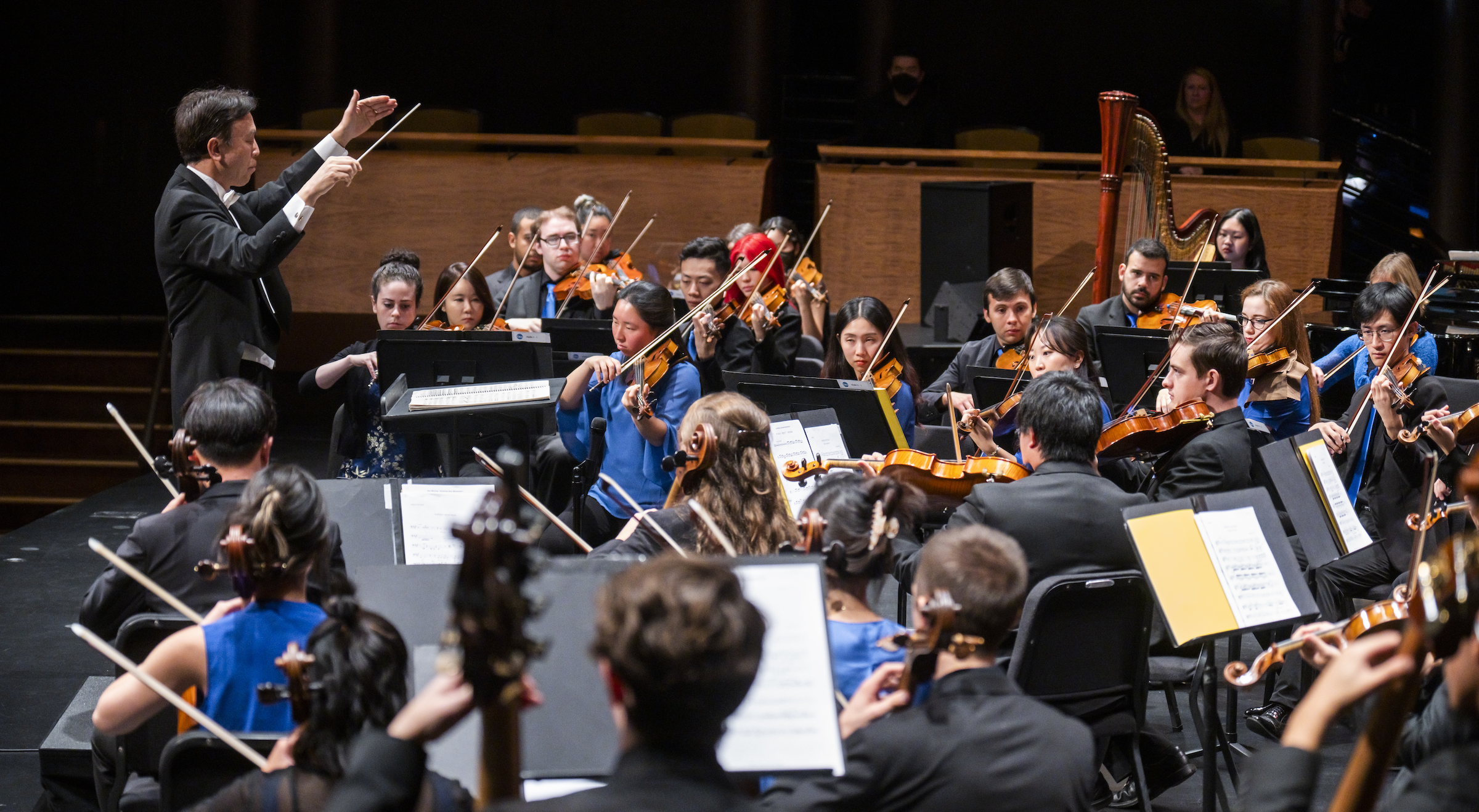SEASON EIGHT
The China Now Music Festival begins its eighth season with a concert by The Orchestra Now performing symphonic works from three generations of living composers from China. Experience the evolution of contemporary composition in China and the fusion of Eastern and Western musical styles into the 21st century.
On sale now! Tickets starting at $15.
PROGRAM
Dai Bo 代博 (b. 1988)
Invisible Mountain prelude and passacaglia 《看不见的山》
Yu Mengshi 于梦石 (b. 1987)
The Lonely Camel Calf for cello and orchestra 《孤独的驼羔》
Hai-Ye Ni 倪海叶, cello
Zou Hang 邹航 (b. 1975)
Color of Qingdao 《青岛色彩》
Color of Beijing 《北京色彩》
Intermission
Ye Xiaogang 叶小纲 (b. 1955)
The Song of the Earth, Op. 47, for soprano, baritone, and orchestra 《大地之歌》
1. Tale of Sorrowful Song (Li Bai)
2. Banquet at Tao Family’s Pavilion (Li Bai)
3. Imitation of Old Poem: Long Autumn Night (Qian Qi)
4. Song of Pick Lotus (Li Bai)
5. Feelings upon Awakening from Drunkenness on a Spring Day (Li Bai)
6. Staying at Teacher’s Mountain Retreat, Awaiting a Friend in Vain (Meng Haoran), Farewell (Wang Wei)
Manli Deng 邓曼丽, soprano
Yue Wu 吴越, baritone
PROGRAM HIGHLIGHTS
-
In this program conductor Jindong Cai connects the festival’s theme of ‘music in motion’ to the extraordinary momentum shaping the development of contemporary classical music in China from the 1980s to today.
The three composers featured in the first half of the program represent the newer generations. Dai Bo, who lost his sight at a young age, evokes the landscapes of China with exquisite sensitivity to timbre and atmosphere. Mongolian composer Yu Mengshi tells a story of longing, using a solo cello to reflect the voices and folk traditions of his homeland. Zou Hang portrays the urban scenery of Ningbo and Beijing as vivid colorscapes, rendered in striking musical detail.
The second half of the program features Ye Xiaogang’s epic masterpiece, The Song of the Earth. Written for orchestra, soprano and baritone in 2006, Ye’s song cycle reinterprets the same seven ancient Tang Dynasty poems which inspired Gustav Mahler’s Das Lied von der Erde (1908-9). Contrasting with Mahler’s melancholic tone, Ye’s work displays a reverence for the elegance and rich musicality of Tang poetic style.
Ye Xiaogang rose out of the legendary first class of composition students at the Central Conservatory of Music (CCOM) after its reopening in 1978. Ye and his fellow classmates, such as Tan Dun, Zhou Long, Chen Yi, and Bright Sheng, went on to revolutionize contemporary Chinese orchestral music. As a professor at CCOM for many decades, Ye mentored generations of young composers, including Dai Bo and Zou Hang from this program.
ABOUT THE ARTISTS
post-concert event
ABOUT THE CHINA NOW MUSIC FESTIVAL
The China Now Music Festival is an annual series of events produced by the US-China Music Institute of the Bard College Conservatory of Music in collaboration with the prestigious Central Conservatory of Music, China. China Now is dedicated to promoting an understanding and appreciation of classical music from contemporary China. Each year’s festival explores a singular theme. The inaugural festival in 2018, Facing the Past, Looking to the Future: Chinese Composers in the 21st Century, presented US and world premieres of orchestral works by 11 living Chinese composers in concerts at Bard College, Carnegie Hall, and Lincoln Center. The following year, the festival presented China and America: Unity in Music at Bard College, Carnegie Hall, and Stanford University, and featured the world premiere of the symphonic oratorio Men of Iron and the Golden Spike, a major new work by Pulitzer Prize-winning composer Zhou Long honoring the Chinese railroad workers of the American West on the 150th anniversary of the completion of the Transcontinental Railroad. Recent seasons include Beethoven and China in 2020, Asian American Voices in 2021, East of West in 2022, The Bridge of Music in 2023, and Composing the Future in 2024.
The 2025 China Now Music Festival is presented in collaboration with the Central Conservatory of Music, China.




